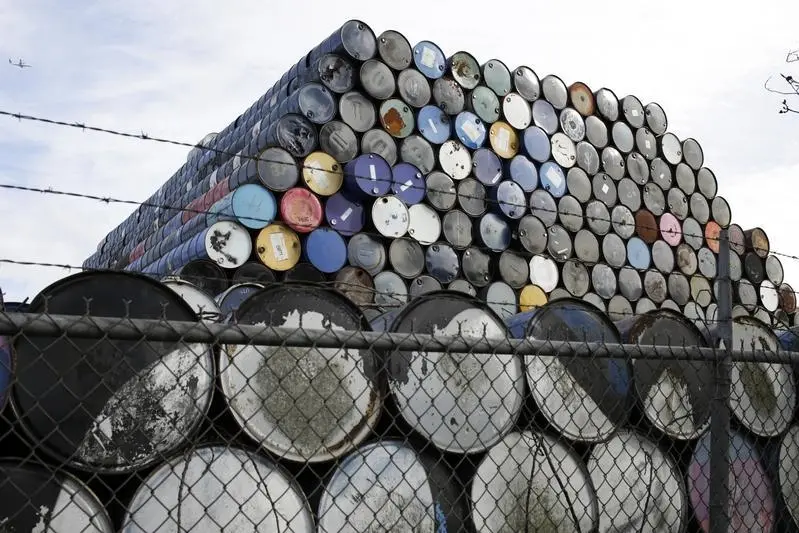PHOTO
The 2017 value of Oman's export sector increased to OMR 12.6 billion, up 22.7 per cent.
The value of oil and gas exports stood at OMR 7.3 billion, or 58.1 per cent of the total value of commodity exports in 2017, while non-oil exports increased by 32.4 per cent to reach OMR 3.1 billion, compared to OMR 2.4 billion in 2016; the highest rate of growth during the past three years. Also, the value of the re-export of products reached OMR 2.1 billion, an increase of OMR 52.7 million over 2016, according to the Times of Oman.
The major non-oil Omani exports include products from the chemical industries, metal and plastic products, tools, electrical appliances, transport equipment and others.
The industrial sector is one of the key areas assisting the growth of the national economy with the current five-year plan focused on increasing the growth in the manufacturing industries, the GDP of which grew by 8.7 per cent in 2017 to OMR 2.8 billion, compared to OMR 2.4 billion, to constitute 48.4 per cent of the GDP for industrial activities, whose value stood at OMR 5.5 billion, according to data by the National Centre for Statistics and Information (NCSI).
Several industrial projects currently underway are expected to increase the volume of Omani non-oil exports, such as the Duqm Refinery and the crude oil storage terminal at Raz Markaz, the Chinese Industrial City, Sebacic Refinery, the bus and auto assembly factory, two cement plants, fish processing plants, along with other projects.
At the Sohar Port Industrial Zone, Orpic, last year, completed the Sohar Refinery Improvement Project (SRIP), which aimed at maintaining the nation’s public health and environment by reducing emissions and recycling industrial waste-water at the Sohar Refinery. The project will also improve the efficiency of the refinery operations, and increase the production of naphtha, which is used as feedstock for aromatic plant. It will further reduce naphtha imports, from 70 per cent to 30 per cent, as well as increase the production of polypropylene, instead of importing. Additionally, the project will produce tar for the first time in the Sultanate, the Times of Oman added.
The Sultanate has witnessed the implementation of a number of projects that support the growth of this sector and contribute to achieving economic diversification; the opening of the new Muscat International Airport, Al Batinah Expressway and work on a number of projects in Duqm, Salalah and Sohar Ports, will provide momentum to the export-based industries.
The experiences of many countries around the world point out that the growth of the export sector contributed to creating new job opportunities and helped in reducing the number of jobseekers.
© 2018 CPI Financial. All rights reserved. Provided by SyndiGate Media Inc. (Syndigate.info).





















